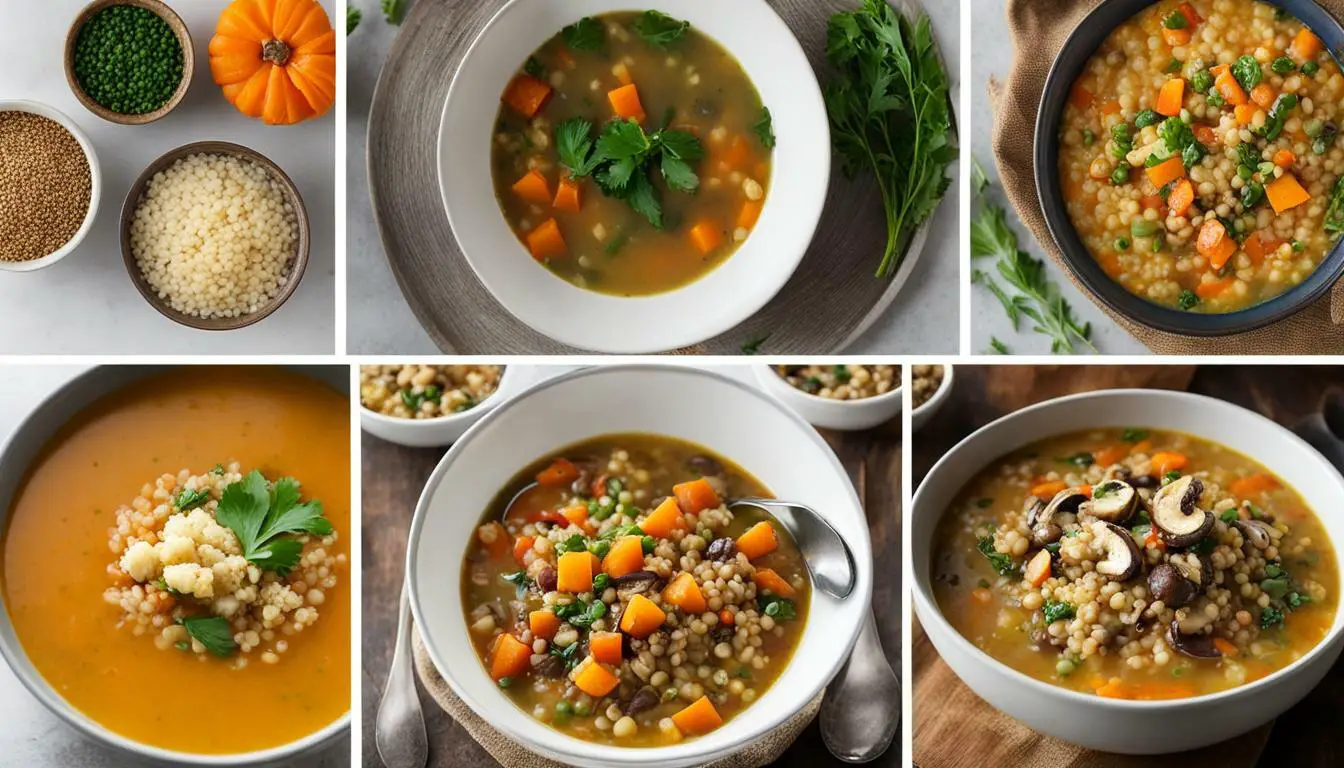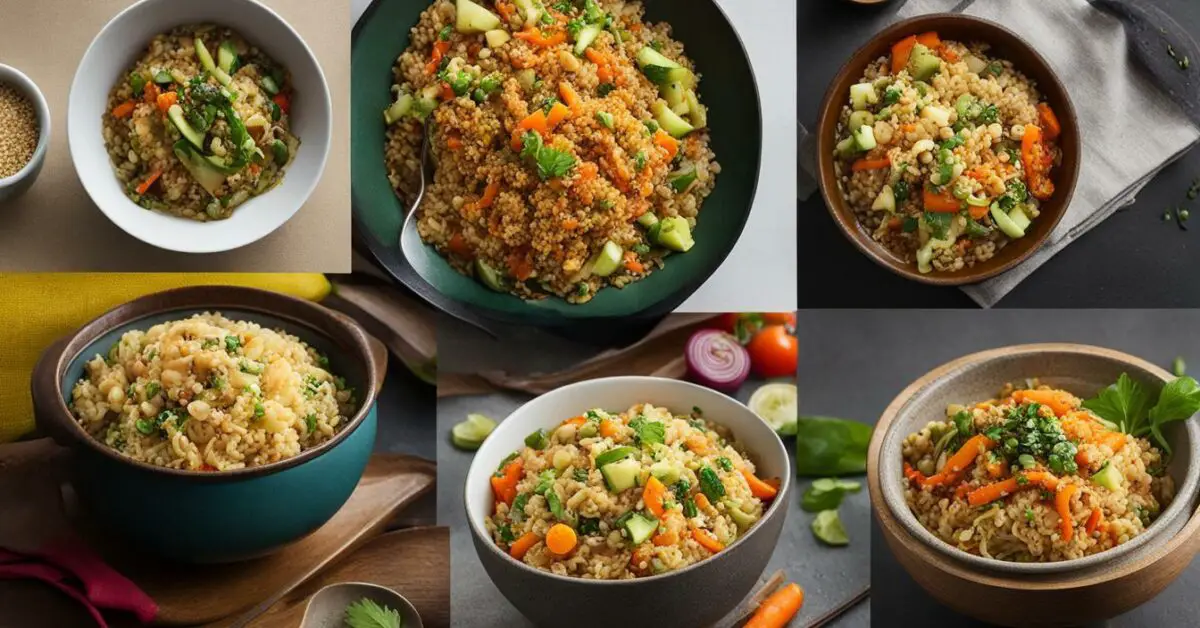
This post may contain affiliate links. Please read my disclosure for more information.
Rice is a common ingredient in soups, but if you’re looking for alternatives, there are several options to choose from. Here are 7 easy substitutes for rice in soup:
Quinoa: A gluten-free seed that is higher in protein than rice.
Riced cauliflower: A low-carb and low-calorie alternative with a mild flavor.
Riced broccoli: Similar to riced cauliflower, it is also low-carb and low-calorie.
Shirataki rice: Made from konjac root, it is calorie-free and high in fiber.
Barley: A grain with a chewy texture and earthy taste that is higher in protein and fiber than rice.
Whole-wheat couscous: A pasta-like grain that is rich in fiber and protein.
Chopped cabbage: Low in calories and carbs, it has a mild flavor that complements soups.
These alternatives can add variety to your soups while providing different nutritional benefits.
Healthy Alternatives To Rice In Soup
If you’re looking for healthy alternatives to rice in your soups, consider these seven substitutes:
- Quinoa: A gluten-free seed that is higher in protein than rice.
- Riced cauliflower: A low-carb and low-calorie alternative with a mild flavor.
- Riced broccoli: Similar to riced cauliflower, it is also low-carb and low-calorie.
- Shirataki rice: Made from konjac root, it is calorie-free and high in fiber.
- Barley: A grain with a chewy texture and earthy taste that is higher in protein and fiber than rice.
- Whole-wheat couscous: A pasta-like grain that is rich in fiber and protein.
- Chopped cabbage: Low in calories and carbs, it has a mild flavor that complements soups.
These alternatives can add variety to your soups while providing different nutritional benefits. Whether you’re looking for a gluten-free option, a low-carb alternative, or simply want to try something new, these substitutes offer unique flavors and textures that will revamp your soups. Give them a try and discover new ways to enjoy your favorite soups while adding a healthy twist.
FAQ
Q: What are some easy substitutes for rice in soup?
A: There are several alternatives to rice in soup, including quinoa, riced cauliflower, riced broccoli, shirataki rice, barley, whole-wheat couscous, and chopped cabbage.
Q: Why would I want to substitute rice in my soup?
A: Substituting rice in your soup can add variety to your meals and provide different nutritional benefits. It can also be a great option for those following a low-carb or gluten-free diet.
Q: How does quinoa compare to rice as a soup ingredient?
A: Quinoa is a gluten-free seed that is higher in protein than rice. It also offers a slightly nutty flavor and a light, fluffy texture when cooked.
Q: What is riced cauliflower and how does it work as a rice substitute in soup?
A: Riced cauliflower is simply cauliflower that has been cut into small, rice-like pieces. It is a low-carb and low-calorie alternative with a mild flavor that blends well with soups.
Q: What is riced broccoli and how can it be used in soups?
A: Riced broccoli is similar to riced cauliflower. It is also low in carbs and calories, making it a healthy option for adding texture and nutrients to your soup.
Q: What is shirataki rice and why is it suitable for soup?
A: Shirataki rice is made from konjac root and is calorie-free. It is also high in fiber, making it a great option for adding bulk to soups without adding extra calories.
Q: What nutritional benefits does barley offer as a rice substitute in soup?
A: Barley is a grain that has a chewy texture and earthy taste. It is higher in protein and fiber than rice, making it a nutritious addition to your soup.
Q: How does whole-wheat couscous compare to rice as a soup ingredient?
A: Whole-wheat couscous is a pasta-like grain that is rich in fiber and protein. It adds a unique texture to soups and can help make your meal more filling.
Q: What are the benefits of using chopped cabbage instead of rice in soup?
A: Chopped cabbage is low in calories and carbs, making it a healthy choice for soups. It has a mild flavor that complements a variety of soup recipes.


